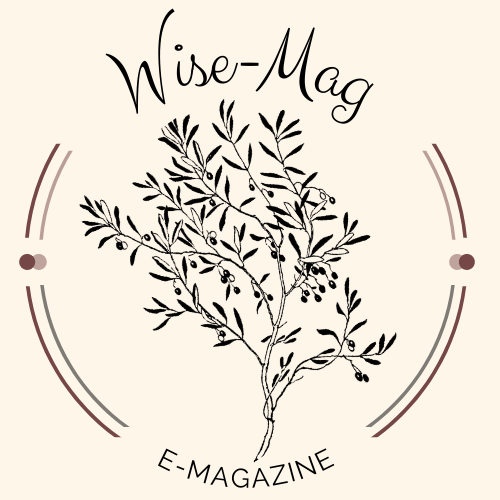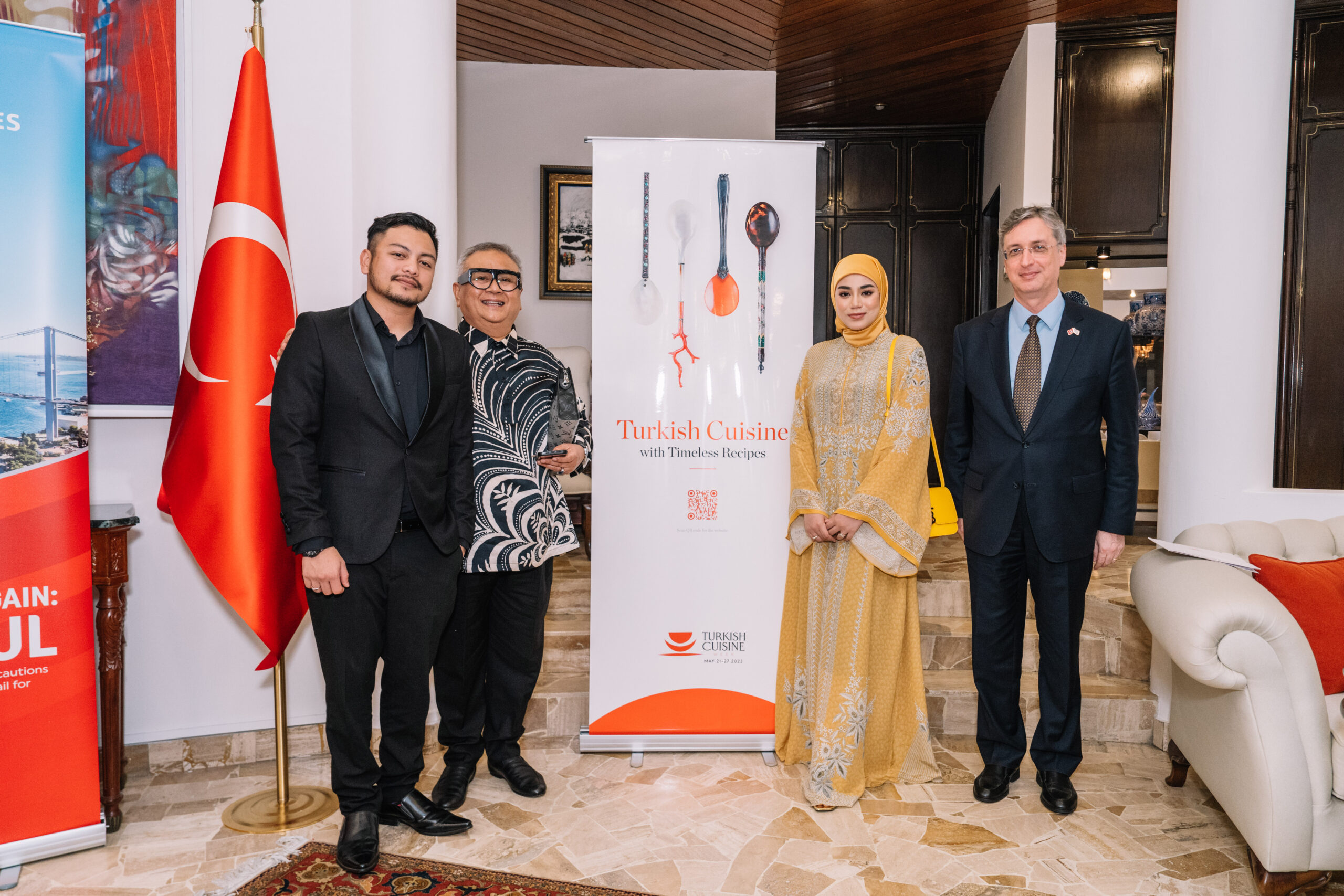Culinary Marvels of Turkiye are a Must-Try
Türkiye’s ancient and sustainable culinary culture is certainly something to appreciate.
Food enthusiasts would surely be fans of Turkish cuisine. One of the reasons to visit Turkey undoubtedly would be their delicious dishes and gastronomic delights. Every year, a Turkish Cuisine Week is held and the most recent one was just as interesting and fantastic. This celebration of Turkish gastronomy bears the traces of dozens of various civilisations and is nourished by a fertile geography and rich history. During the second edition of Turkish Cuisine Week, emphasis was placed on the regional cuisine of Hatay, recognised as the “26th Gastronomy City of the World” by the UNESCO Creative Cities Network. The Turkish Cuisine Week also highlighted sustainable and zero-waste production practices in Turkish food culture.
Turkish Cuisine Week is coordinated by the Ministry of Culture and Tourism of the Republic of Türkiye. Türkiye’s diplomatic missions worldwide organised various activities and social media campaigns to promote the distinctive flavors of Hatay cuisine. This year the events featured a unique menu dedicated to Hatay cuisine. Hatay cuisine combines high-quality olive oil and grains, legumes, vegetables, fruits, native herbs, and spices cultivated on fertile soils dominated by the Mediterranean climate.
In Malaysia, Turkish Cuisine Week was kick-started with an exclusive dinner hosted by the Ambassador of Türkiye to Kuala Lumpur, His Excellency (H.E.) Emir Salim Yüksel, followed by an online activity featuring Chef Maximilian J. W. Thomae and a Turkish Cuisine demonstration workshop featuring kısır (fine bulgur salad) and Sini Kebabı/Tepsi Kebabı to 29 students of Le Cordon Bleu Malaysia.
“Through the week-long Turkish Cuisine Week, the healthy, traditional, waste-free and sustainable nature of the deep-rooted Turkish cuisine is promoted on an international scale. Türkiye is among the top five countries with the most intangible heritage values inscribed on UNESCO’s list of the Intangible Cultural Heritage of Humanity. Among these, we also have traditional recipes from Turkish cuisine, such as flatbread, as well as keşkek, a Turkish dish with meat and wheat; and mesir paste, consisting of 41 herbs and spices. Turkish coffee is also part of the UNESCO Intangible Heritage List, symbolising not only a special brewing technique but also a rich communal traditional culture and history,” said H.E Emir Salim Yüksel, Ambassador of Türkiye to Kuala Lumpur.
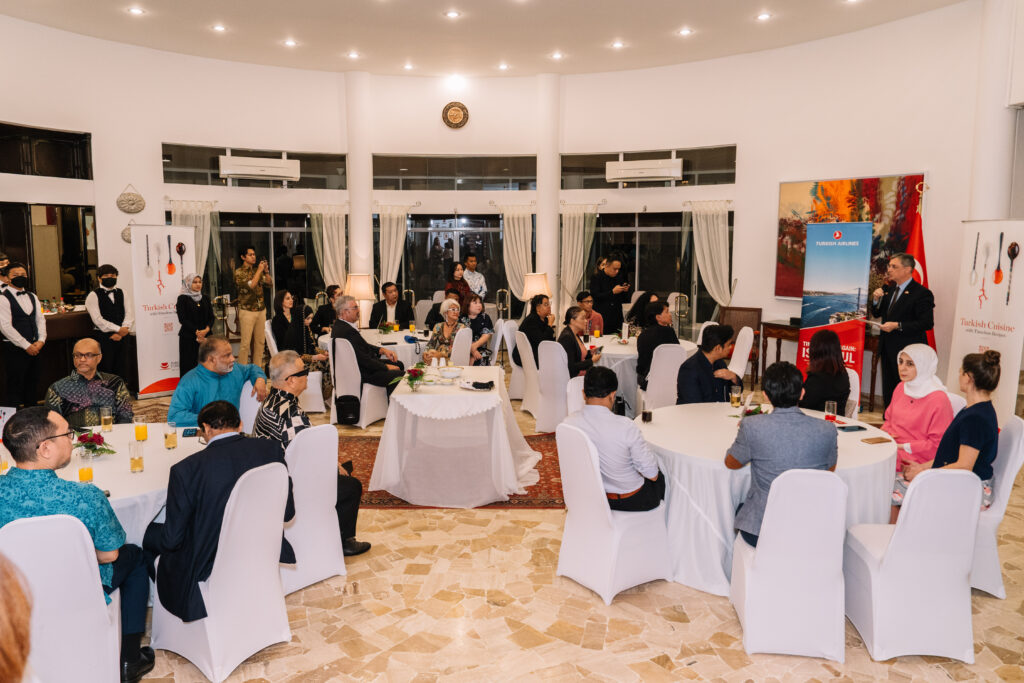
Ambassador of Türkiye to Kuala Lumpur, H.E Emir Salim Yüksel giving a speech and welcoming his guests at his official residence.
H.E Emir Salim Yüksel added, “Cultural heritage does not only refer to monuments and artifacts; it actually goes way beyond with customs, rituals, skills and recipes that we inherit from our ancestors and pass on to our descendants, as defined by UNESCO. The dishes that we prepared for you today are from the city of Hatay, one of the cities in the gastronomy field of the UNESCO Creative Cities Network.”
During the dinner, participants were given the opportunity to watch a demonstration of the preparation of “stuffed grape leaves with meat” and kısır by renowned Turkish chef, Chef Turgay Gündodu and were served the Hatay menu, including biberli ekmek (flatbread with red pepper paste), olive salad, hummus, kısır and “kunefe” (kadayıf dessert with cheese).
Turkish chef, Chef Turgay Gündodu demonstrating kısır, a fine bulgur salad with tomatoes and fresh herbs.
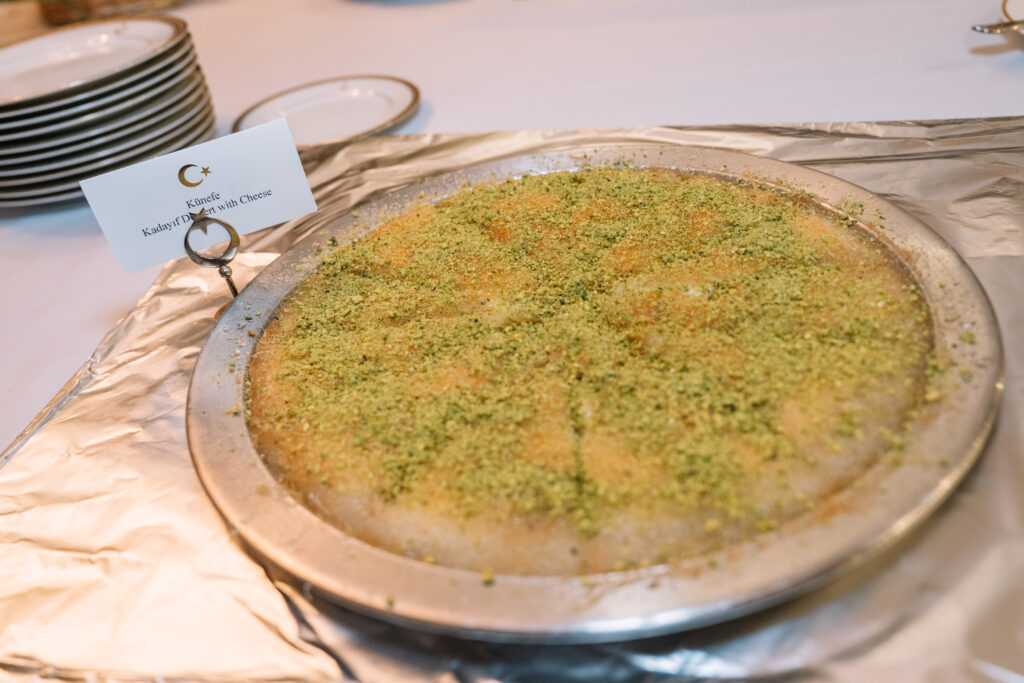
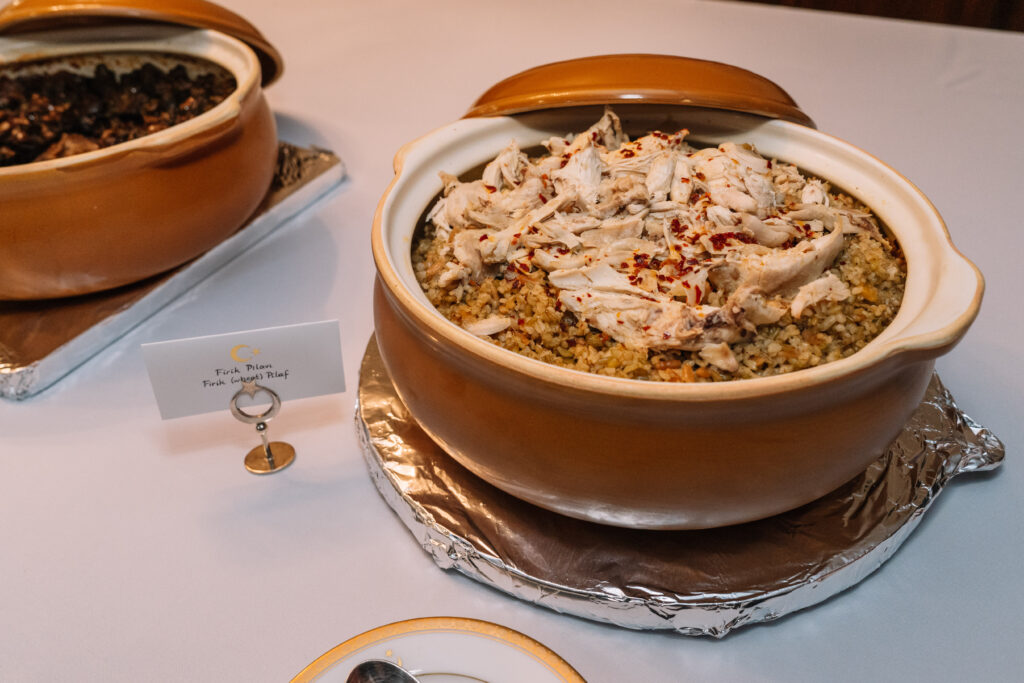

Participants of the Turkish Cuisine Week event were also given a chance to join a live online activity where Chef Maximilian J. W. Thomae prepared Hatay’s native dish kısır using local ingredients and traditional cooking techniques. The live streaming was viewed by invited participants and they had the opportunity to learn about the rich biodiversity of Turkish cuisine and its readiness and potential to respond to various eating and drinking trends Participants experienced a hands-on approach to Turkish cuisine’s cooking methodology, based on a sustainable and zero-waste approach. Healthy and timeless recipes united participants around Turkish eating and drinking rituals, which were structured around feelings of unity, togetherness, and cultural sustainability.
Kisir (fine bulgur salad)
To spread the city’s culinary heritage, which has hosted many different civilisations throughout history, Chef Turgay Gündodu also held a demonstration class for 29 culinary students of Le Cordon Bleu Malaysia. During the demonstration, the students had the opportunity to have a hands-on experience with kısır and Sini Kebabı/Tepsi Kebabı.
Chef Turgay Gündodu demonstrating the dishes to the Le Cordon Bleu Malaysia students.
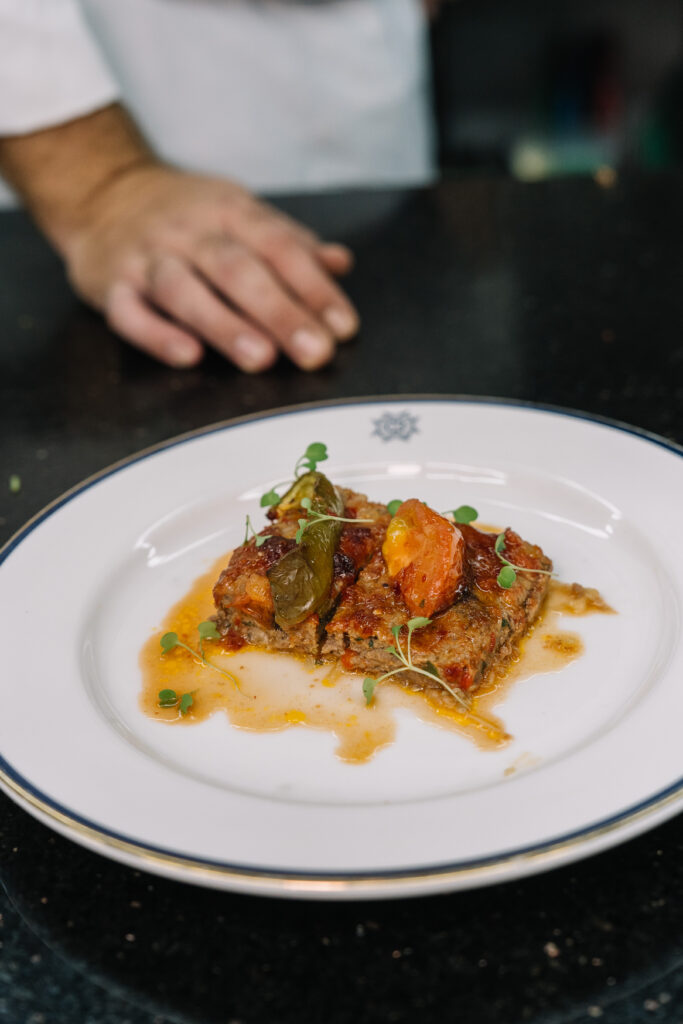
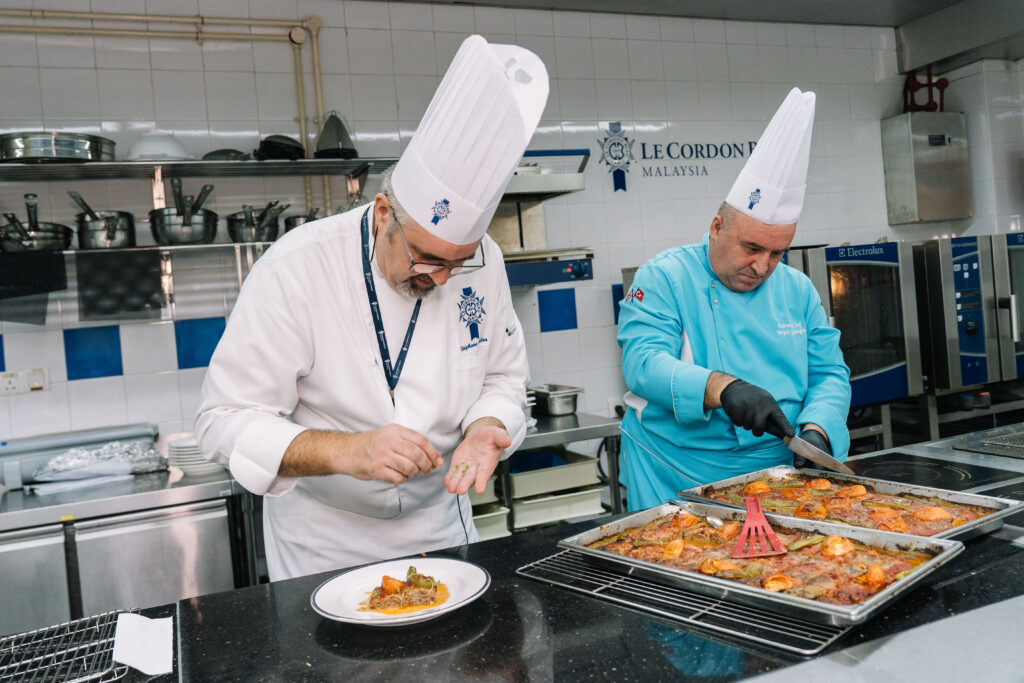
For more information on Turkish Cuisine Week, please visit the website at turkishcuisineweek.com/homepage
Türkiye is a unique destination and a hub for cultural interaction. It is located in the Mediterranean Sea and connects the Asian and European continents that are separated by the famous Bosphorus. In addition to its perfect climate, Türkiye inspires visitors with its history, nature and gastronomy, all of which reflect the diversity of civilisations from over many centuries. Located at the crossroads of cultures, Türkiye has a distinctive understanding of art and fashion which is the synthesis of tradition and modernity. Its dynamic shopping and entertainment life also attracts visitors from all over the world. For more information on Türkiye please visit: https://www.goturkiye.com/
